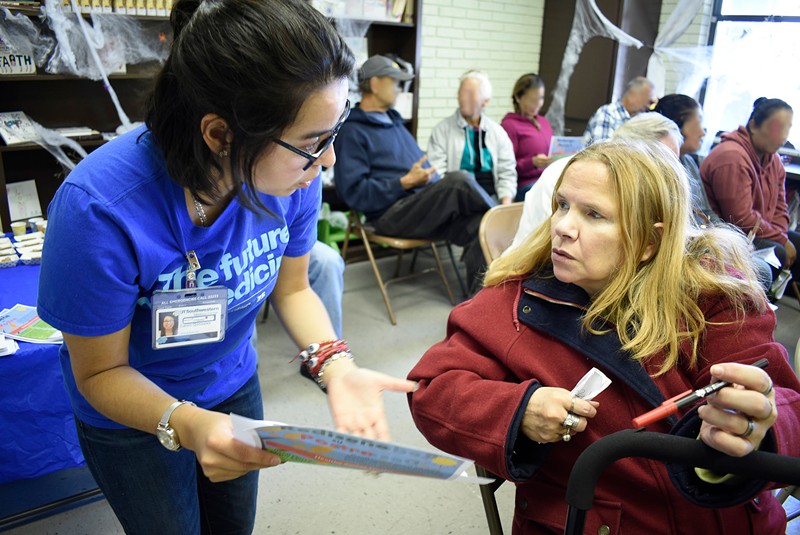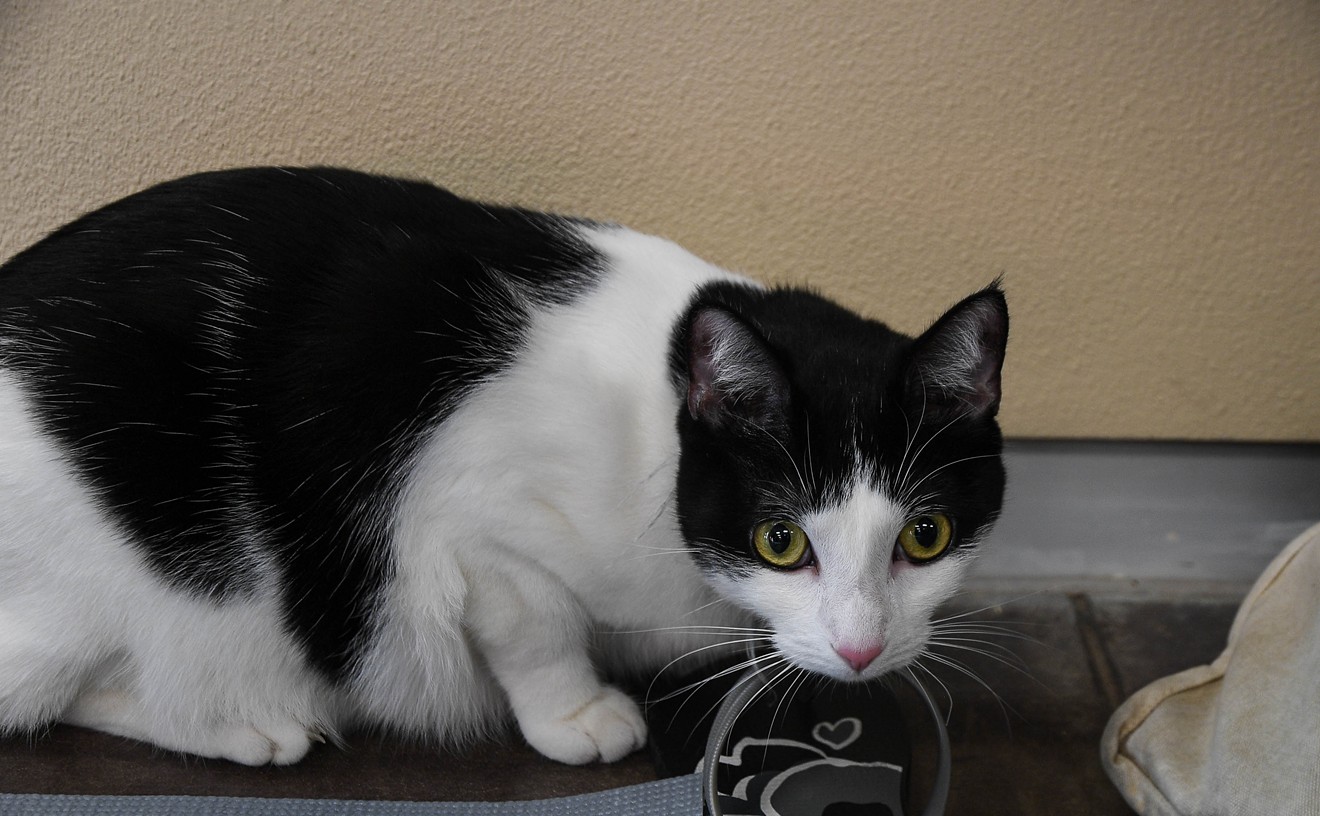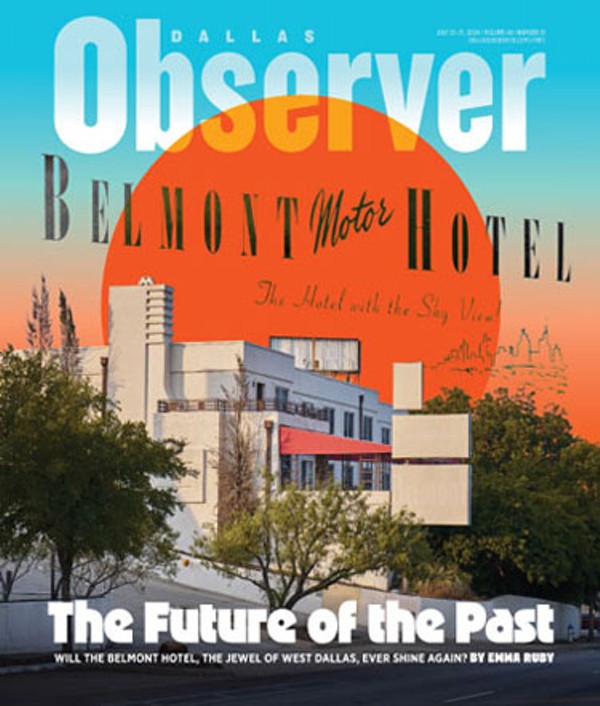A new Dallas initiative is about to take a stab at doing exactly that, thanks to a $250,000 grant and a resource-sharing agreement between some of the region's biggest players in public health.
Crossroads Community Services, one of the largest distributors of food to low-income families in Dallas, is partnering with Dallas County and Parkland Hospital to integrate their programs, a move that research shows could improve health outcomes and, ultimately, save money.
The goal is to offer routine health care when low-income families come to the pantry to pick up food, and vice versa, to provide patients with nutritious food to take home after a visit to the doctor.
Dr. Philip Huang, the county's director of Health and Human Services, expressed his excitement in a video promoting the partnership: "Working together to address some of these issues and improve health comprehensively has tremendous opportunity. That's the only way we're going to be able to solve these problems."
They're not easy problems to fix. Nearly a fifth of people in the county experience food insecurity, and over a third of the city's residents live more than a mile from the nearest grocery store. Lack of access to healthy food drives numerous health problems, and many start early. Nearly half of Dallas County children are overweight.
Efforts to address the issue have resulted in high-profile failures. In response to protests over a $3 million gift to Costco to open a store in North Dallas, the city offered the same amount to any grocery chain willing to open a store in one of the city's many food deserts to the south. There were no takers.
With no long-term solutions on the horizon, food pantries are filling the gaps. Crossroads Community Services uses a hub-and-spoke model. It's one of the hubs, operating out of the old North Texas Food Bank building in southern Dallas, where it distributes food to over 60 "spokes" — local community partners such as churches and public housing complexes. It gave away nearly 2 million meals last year alone.
"Working together to address some of these issues and improve health comprehensively has tremendous opportunity. That's the only way we're going to be able to solve these problems." — Dr. Philip Huang
tweet this
Its proposal was one of 18 projects to receive grant funding this year through the BUILD Health Challenge, a national competition to fund innovative efforts to address underlying causes of public health problems.
Huang, who recently took the Dallas job after a stint in Austin, said coordination efforts were spurred by data coordination already underway at Crossroads. The organization keeps an electronic database of all its available food and allocates it to clients based on their health needs and diagnoses. Huang said he was blown away when he saw it.
"I was very impressed," he said. "Is anyone else in the country doing this? I know Austin wasn't."
According to the grant application submitted by Crossroads, the county will be providing "health promotion, diagnosis, treatment and human service programs at Crossroads locations." Parkland has made similar promises.
Families will be able to get immunized while they pick up food, explained the Rev. Jay Cole, the executive director of Crossroads.
Crossroads is working with local researchers to evaluate the program going forward. For nearly a decade, the organization has collected health data about its clients, like height, weight and mental health indicators. It's the only food pantry to do this, said Sandi Pruitt, a researcher at UT Southwestern who has been using the Crossroads data to conduct research on the effectiveness of their programs.
Using this data, they've found that families that come to Crossroads more often have better health outcomes, a perhaps intuitive result but one that runs counter to the notion that families need to graduate quickly from food assistance.
They also discovered that a fifth of Crossroad's clients rely on Parkland's emergency room, a high rate that is expensive to taxpayers.
The hospital is taking notice. In its community needs assessment released earlier this year, it targeted ZIP codes in southern Dallas as most vulnerable and in need of health care assistance. It's matching Crossroads' grant with $250,000 in health care services to be provided at food distribution centers by community health workers or through telehealth.
Pruitt said that what's most unique about this new program is the direct partnership with Parkland. "The majority of Crossroads clients already received care from Parkland, but the social services and health care are not coordinated very well. So we'll be linking data sets and using a lot of Parkland's resources to better evaluate outcomes in this population," she said. She hopes early positive results from the partnership will help secure more funding down the road.
Per the grant proposal, Parkland will also use Crossroads' data to refer low-income patients to the nearest Crossroads food distributors. This, Cole said, is a crucial indicator of the partnership's long-term success.
"That is, to me, the biggest challenge of this, especially working with organizations the size of Dallas County Health and Human Services and Parkland: working out a referral system that sustained itself and keeps going," Cole said.
"If we do that, we've hit a home run."












